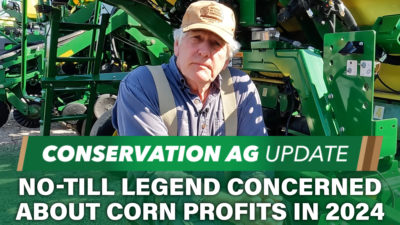BASF’s new Velondis brand biofungicide seed treatment formulations have received registrations from the Environmental Protection Agency (EPA). With potential applications in agriculture, horticulture and forestry, the products are designed to boost the protection of seedlings and plants from key soil-borne diseases.
The bacteria in Velondis produce a beneficial biofilm and antimicrobial components that promote systemic resistance within the plant, resulting in suppression of disease organisms that attach to root systems. Two of the Velondis biofungicides have additional components that help plants produce a more vigorous root system, resulting in improved plant growth and yield potential.
“Velondis biofungicides mark a major step for BASF in the use of natural biologicals to help plants fight disease,” said Justin Clark, BASF, Technical Marketing Manager. “We plan to use this new active ingredient in a number of different products and applications to help improve disease control and increase crop yield potential.”
A key microorganism incorporated in the new Velondis formulations is a unique strain of Bacillus subtilis, a natural, beneficial bacterium that lives on the surface of roots and the surrounding soil, or rhizosphere.
Scientists at the University of Delaware’s (UD) College of Agriculture and Natural Resources and the Delaware Biotechnology Institute (DBI) conducted research on the beneficial bacterium with initial support from USDA HATCH funds, and additional funding from DBI, the National Science Foundation and BASF. The University’s Office of Economic Innovation and Partnerships also provided funding and significant intellectual property management.
Janine Sherrier, Ph.D., professor of plant and soil sciences, and colleague Harsh Bais, Ph.D., associate professor of plant and soil sciences at UD, were the lead inventors on the patent, which the University has licensed exclusively to BASF. The two professors, along with co-inventor Venkatachalam Lakshmanan, Ph.D., led collaborative research teams studying the microorganism.
“At the University of Delaware, we’re able to pursue early discovery work, with the ultimate aim of providing safe and effective tools for growers,” said Sherrier. “The translation of basic research into commercial products is an arduous path, so we are pleased that our work has resulted in the development of new products for agriculture such as Velondis biofungicides.”
Velondis biofungicides will be used in different facets of agriculture and will initially be labeled for use with soybeans in spring 2018. Growers can learn more about Velondis biofungicides by visiting BASF Ag Products or by contacting their local BASF representative.






Post a comment
Report Abusive Comment